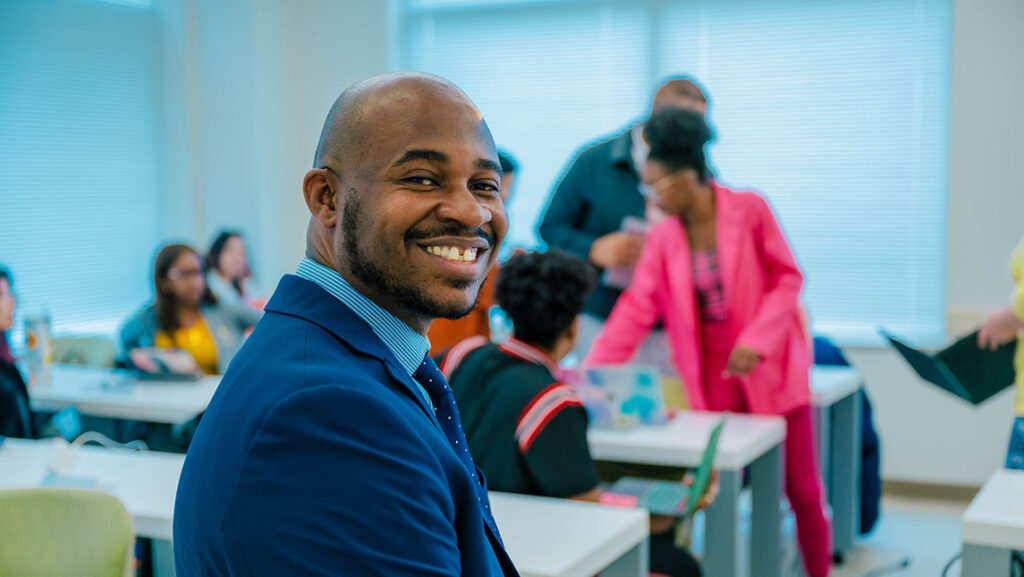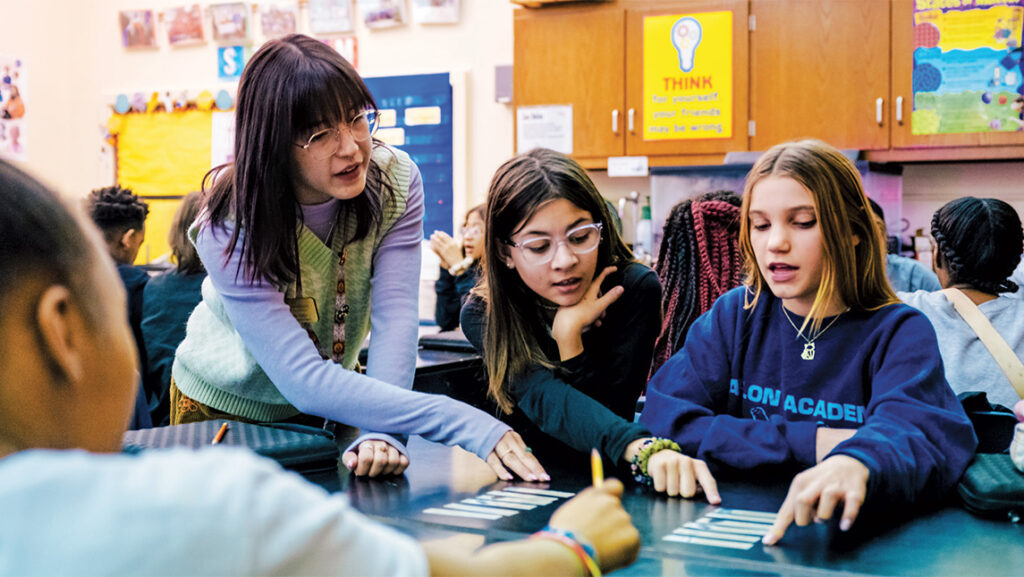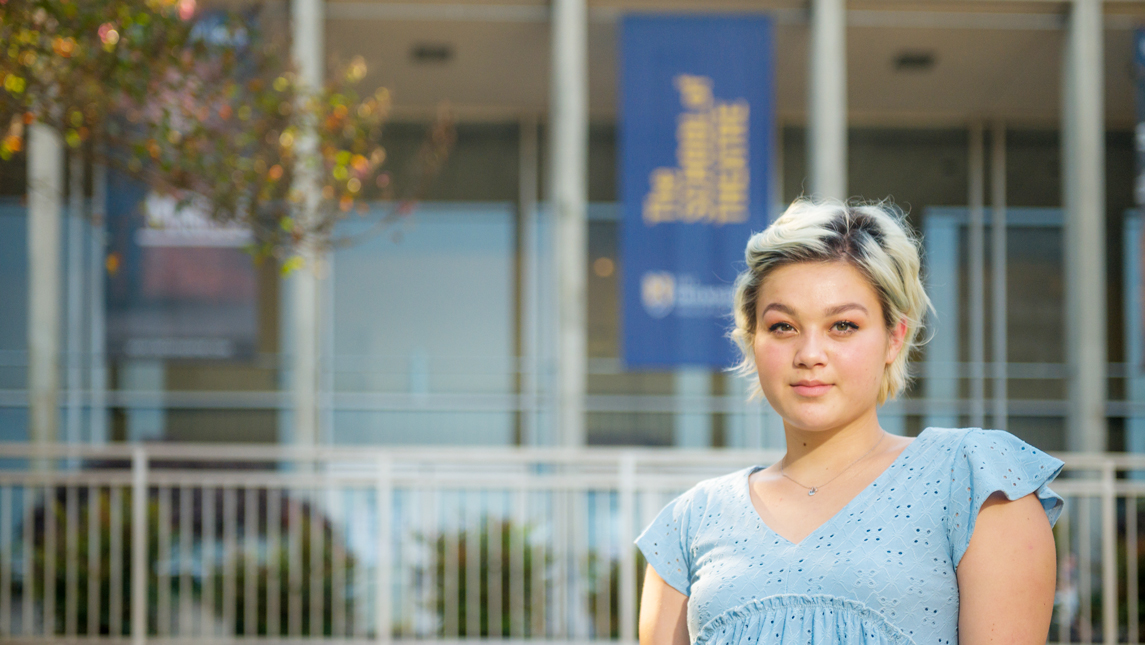
It was an early August day in the Midwest, and Molly Oldham was as excited as she could be to hit the road. She was packed and ready to relocate from Ohio to the UNCG campus, where she’d start her freshman year in the new Musical Theatre BFA program. She and five other students would make up the first cohort for the new program, and they had already gotten to know each other through phone texts and online group chats.
But that same week turned out to be a monumental turning point in her life. After going to the hospital upon experiencing increasingly severe headaches, Oldham received news that she had a brain mass the size of a tennis ball, and that it needed to be surgically removed immediately. Before she left the hospital, she would be diagnosed with Stage Three Anaplastic Ependymoma, a rare aggressive brain cancer that affects 300 people nationwide each year.
Oldham underwent brain surgery to have the tumor removed, followed by seven weeks of daily proton radiation and months of daily intensive rehabilitation consisting of physical, occupational, and speech therapy. Family, friends, her new cohort, and faculty at UNCG all stepped up to support her in any way that they could. She continued to bond with her new classmates – in fact the diagnosis brought them closer together – as faculty and administrators at UNCG held her place in the program as she continued her treatment throughout the fall semester of 2019.
Classmates even traveled to her hometown of Akron, Ohio, to participate in the “Cabaret for a Cure” benefit that was held for Oldham, headlined by Broadway star Natalie Weiss. She wasn’t even on campus yet, and she had already formed lifelong friendships both inside and outside the BFA program.
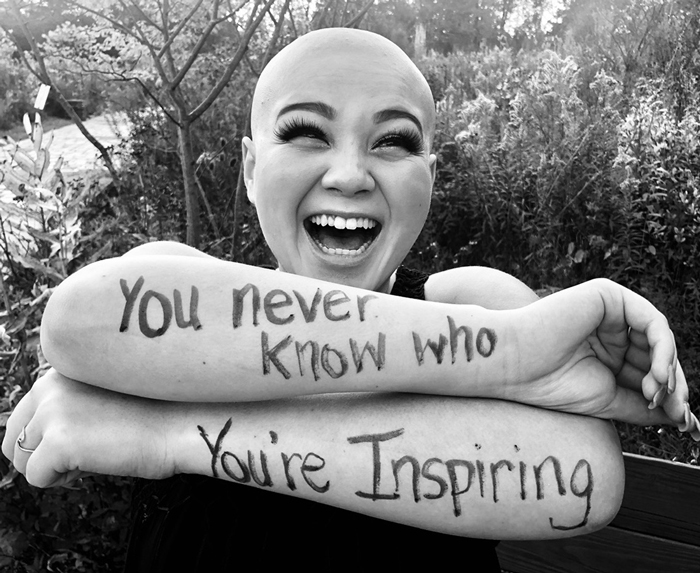
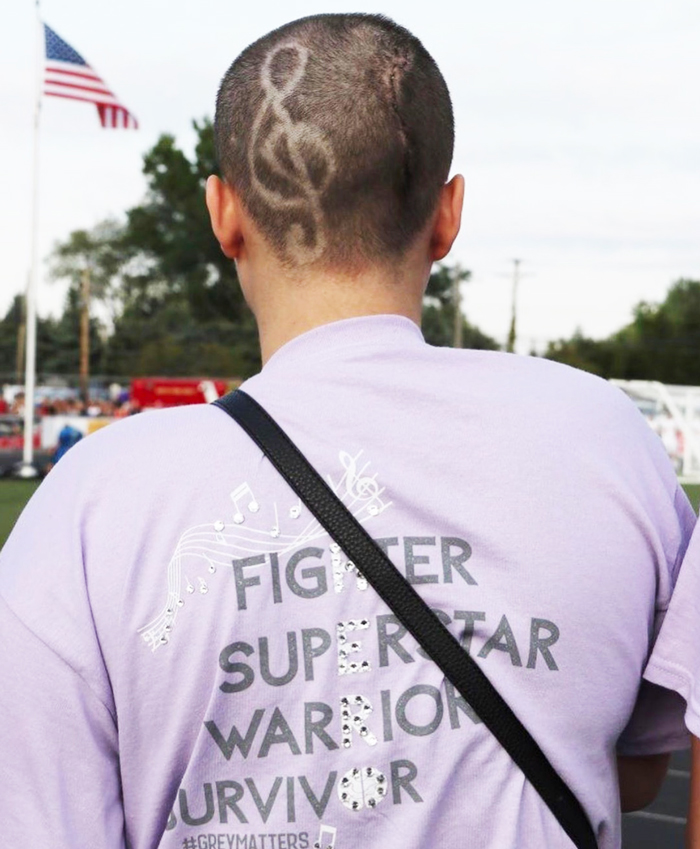
After months of hard work and an unwavering determination to get to school, Oldham moved to Greensboro for spring semester 2020, exactly 5 months from the day of diagnosis.
Not only had Oldham missed many of the events and activities that normally await new freshmen who arrive on campus in the fall, she was still struggling with the strain and challenges of treatment and rehabilitation. But she was finally on campus. She worked hard to keep up with classes and studio work as she dealt with frequent exhaustion, nausea, and a roller-coaster of emotions while she learned to navigate life not only as a new freshman in a strange place, but one who was working to beat back the physical and emotional toll of post-cancer recovery.
But Oldham’s arrival to campus would be short-lived. The COVID-19 pandemic struck early in the spring semester, and by mid-March, the University made the difficult decision to move all classes online, to close dorms, and send students home. She returned to Ohio, and continued to keep up with classwork and pursue rehabilitation. As the end of what would have been her freshman year arrived, Oldham found that she had only been on the UNCG campus for a total of five weeks.
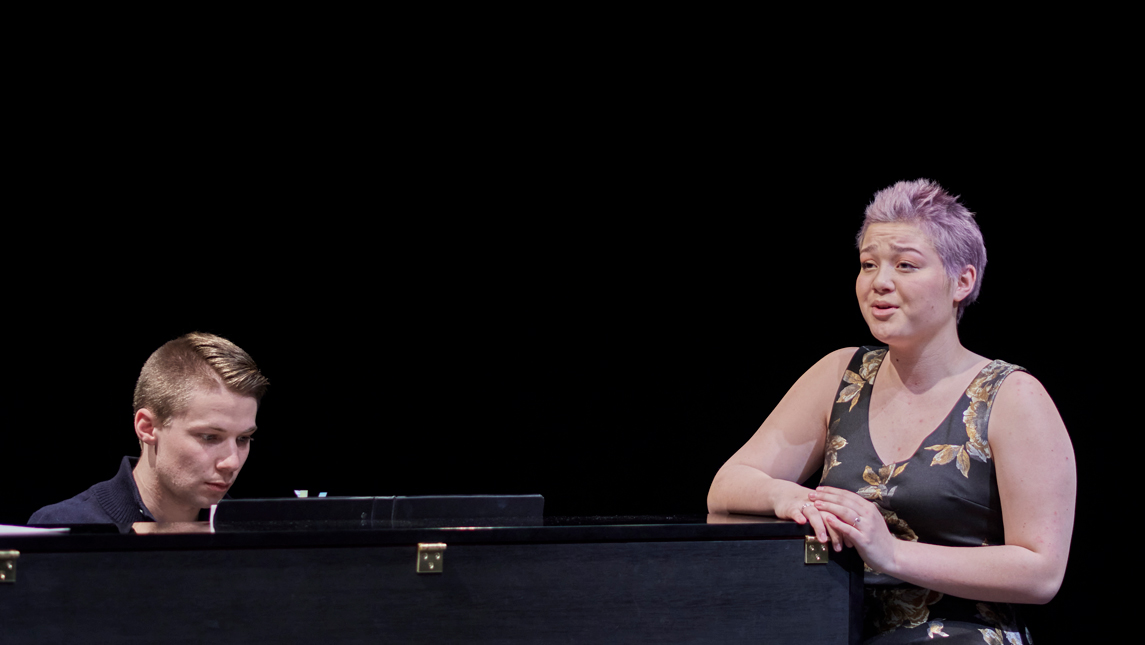
As the looming pandemic began to upend lives, work, and school, Oldham was struggling each day to get through her classes and meetings. At one point she experienced a significant seizure and had to be transported to Duke Hospital in Durham. Being able to go home early in the spring might have been the best thing that could have happened to her.
“Corona happened at a good time for me because I got to go home and rest,” Oldham says. “And that was something I didn’t realize how desperately I needed. I was very sad that college was cut short, but at the same time, looking back on it, I don’t know if I would have been able to make it through the whole semester. I just couldn’t keep up like everyone else could, physically. So it happened at a good time.”
Fast forward to Fall 2020 semester, and Oldham is back on campus and doing well. Along with two fellow Spartan undergraduates with whom she had become close friends, she moved into her apartment in Greensboro on August 15, the one-year anniversary of her cancer diagnosis.
And how did she feel about coming back to campus during a pandemic?
“Because of my past health issues, I was super nervous to come back,” Oldham admits. “But the theatre department has done so much for Coronavirus. They have air filters in our singing rooms. We have special masks they built for us to perform in. I feel like the theatre department has done a really great job of making sure everyone feels safe.”
Currently, Oldham is taking one of the busiest semesters of the BFA program, and continues to deal with the lingering effects of her treatment and rehabilitation, including extreme fatigue which is typical for radiation patients. But she’s only a phone call or text away from her roommates, teachers, friends, and family who can come to her aid if she needs it. A network of classmates have a plan in place if Oldham needs to be taken back to Duke Hospital – her local post-cancer care facility – for emergencies.
Throughout Oldham’s difficult journey to becoming a Spartan, many family, friends, fellow students, and faculty have stepped up to help. But three Musical Theatre faculty members in particular, including Dominick Amendum, Erin Farrell Speer, and April Hill, have gone above and beyond to help her through these tumultuous times – all while working extra hard to develop the new Musical Theatre BFA, deal with the immense pedagogical challenges of the pandemic, and going through the process of recruiting for the second-year cohort. And on top of these challenges, Amendum was splitting his time between UNCG and working tirelessly as music supervisor for the opening of “The Prince of Egypt” in London’s West End Dominion Theatre.
Oldham and her faculty mentors all agree that one of the unique strengths of the program – and a big factor in what influenced Oldham to decide on coming to UNCG – is the emphasis on an individualized culture of care for the students, and a program that encourages a sense of family and community.
“Not only has the musical theatre family been an incredible support, but the School of Theatre and UNCG as a whole has provided an incredible culture of care that could not have happened for Molly anywhere else,” says Oldham’s mother, Bunny.
Oldham’s mother has been instrumental in her daughter’s success both in terms of recovery and her performance as a student, but she is also a stalwart supporter of the new musical theatre program and UNCG more broadly. Speer and Amendum both note her significant role in helping to recruit other outstanding students and to help spread the word about the burgeoning BFA program.
“Molly has come so far in her work here at UNCG,” says Hill, who teaches voice in the program. “Being away from home for the first time is a huge adjustment for most freshmen, and since Molly was still recovering as she arrived at UNCG in the spring, she had huge obstacles to overcome. Singing is challenging physical work and stamina was a real issue at first, since students are expected to practice on a daily basis. It has been amazing to see Molly regain her strength and really apply herself.”
While Speer, Amendum, and Hill go extra miles to help their students, they also hold them to high standards and expectations. Even Oldham. While they took special care to accommodate Oldham’s late entrance into the program and her unique needs as she deals with recovery and survivorship, they also have held her to the same high standards as others in the program when it comes to pushing their students to grow, learn, and adapt. Professional musical theatre is not an easy business to be in and is highly competitive, so it is important to UNCG musical theatre faculty to prepare their students as best they can for what lies ahead.
In addition to continuing to support Oldham’s recovery, Speer and Amendum know they must also move forward with encouraging her full immersion into the Musical Theatre’s BFA program. “I think our job is also to consider how we celebrate that she’s on the other side of this,” says Amendum. “And train her like it never happened, in a way – train her like she’s one of the group and give her the same attention. We want to continue to work on finding normalcy for her and for our program, and get her to a place of being just one of the gang.”
Oldham’s experience with cancer has given her a new perspective on life, and ample raw emotion to draw from as a performer.
“Because of my cancer, I realize that I don’t take things for granted anymore,” she states. “At this point last year, I was re-learning to walk. I feel like now everything that I do has a lot more purpose. And there’s a lot more meaning behind the things I do. When I’m acting, I don’t feel like I have to pull as hard to get those emotions out – they just come to me.”
Oldham has plans to eventually land on Broadway, but she’s keeping her options open and taking her mentors’ advice to push herself to move out of her comfort zone, to try new things, and to learn the many different aspects of professional musical theatre.
“You just need to be open to different possibilities,” she says, “because you’re not guaranteed anything in this life.”
Amendum and Speer note that they look to recruit students who have strong character, a personal story to tell, and who can grow and develop as human beings as well as professionals. And Oldham is well on her way down the path to thinking beyond just the acting, the singing, and the technical skills.
“I want to be someone who other people want to work with,” she says. “And when they think about someone they want to collaborate with, I want to be that kind of person.”
But her fight to survive now extends beyond campus, her major, and even her own life. Through her advocacy for pediatric cancer, Oldham has been able to use her voice to raise awareness and funding for others battling cancer.
She has had the opportunity to sing for a variety of cancer awareness events from Utah to Washington D.C., including singing the National Anthem in front of 20,000 people for the NHL Hockey Fights Cancer night. She has helped to raise thousands of dollars in her first year of survivorship and will continue to do so through her next project, “TMI, The Molly Impact,” which will bring awareness and funding to patients 18 to 24 years of age, an under-served age group.
Story by Matthew Bryant, University Communications
Photography by Martin W. Kane, University Communications; Bunny Oldham, and Betty-Lin Fisher

